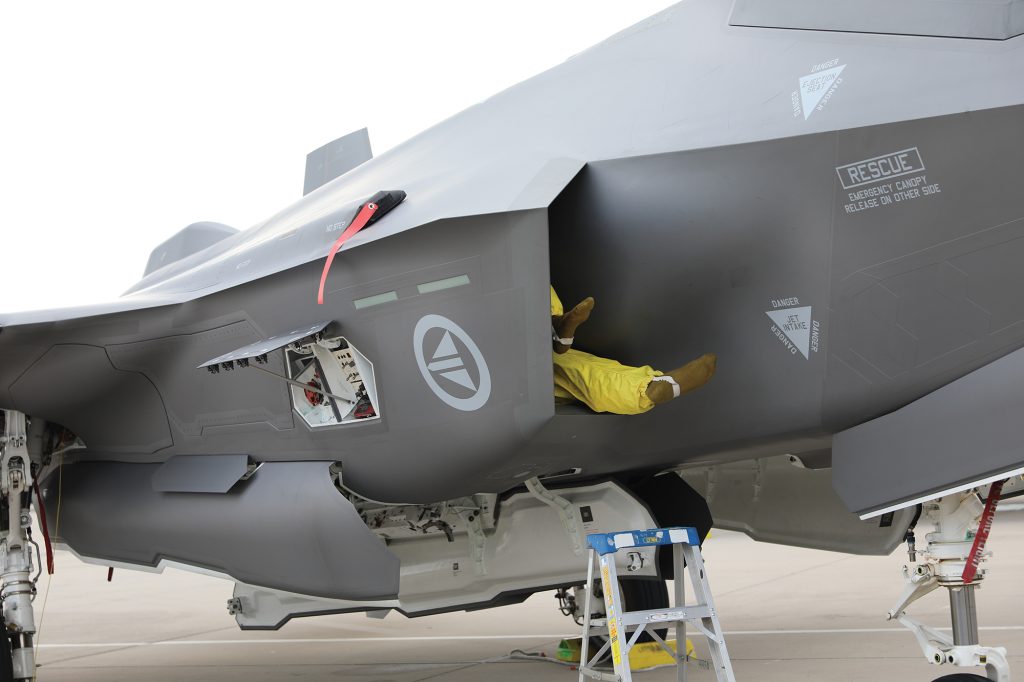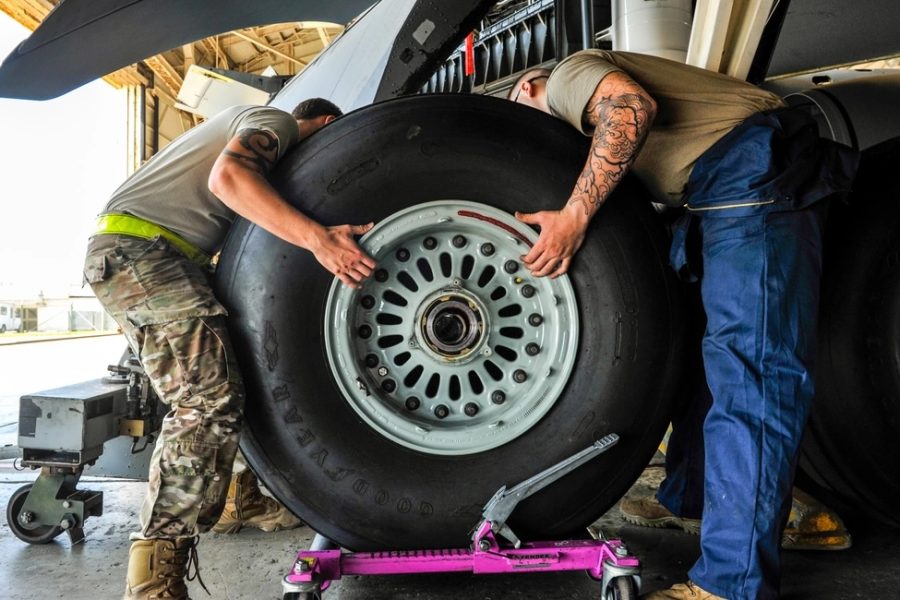The Air Force is rolling out a new initiative aimed at helping aircraft maintainers prevent mishaps, so long as they sign a nondisclosure agreement (NDA) to keep it to themselves.
Under a new annual privileged safety information (PSI) training, Active, Reserve, and Air National Guard maintainers across the service would be prepared to receive the full picture of mishap events—including factors, findings, causes, and recommendations—so that they have a better understanding of what caused them. After the training, maintainers would have to sign an NDA, a contract not to share confidential information.
“The confidentiality provided under Safety Privilege underpins the success of our mishap prevention program by allowing Airmen and Guardians to provide a full accounting of mishap events without danger of disciplinary action or public release,” Air Force spokesperson Ann Stefanek told Air & Space Forces Magazine in an email.
“Without privilege, we don’t quickly get to the root cause of a mishap, and mishap prevention is critical to mission readiness and our national security,” she added.
The NDA requirements are common in the aircrew community, where PSI training and briefings “quickly instill lessons learned across the force by confidentially sharing mishap data,” Stefanek said. Air Force Chief of Safety Maj. Gen. Sean M. Choquette pushed to expand the training to maintainers in August in response to an uptick in aviation maintenance-related mishaps, Stefanek explained.
“Annual safety privilege training will be provided to allow access to mishap data and ensure protection of the data,” she said. “Installation safety shops will manage the process and ensure maintenance-related mishaps and trends relevant to the unit’s mission or aircraft are shared.”
No one can be required to sign the NDA, Stefanek added, but those who don’t sign it would not be allowed to access any PSI and “would not be as fully equipped to help prevent mishaps and injuries.”

The popular unofficial Facebook page Air Force amn/nco/snco first shared news of the training last month, and Air Force Times verified the reports Oct. 14. The training comes amid a yearslong trend where news of aircraft mishaps often first appears in photos posted to social media, particularly the Air Force amn/nco/snco page.
“Perhaps the Air Force is tired of accidents getting out and Congress, Media and the Public demanding answers,” the page’s moderator wrote in the initial post about the PSI training and the NDA requirement.
Stefanek did not immediately respond when asked by Air & Space Forces Magazine to provide a copy of the NDA maintainers would have to sign; nor when asked if the new training and NDAs are also aimed at reducing the number of photos of aircraft mishaps that wind up on social media. But even if they are, one crew chief said the training could help maintainers gain a better understanding of what causes mishaps.
“I think it will aid in obtaining the full picture as a lot comes with a mishap,” the maintainer told Air & Space Forces Magazine on the condition of anonymity. “By that I mean major mishaps being a ‘Swiss cheese’ effect, and usually not due to one major misstep but an accumulation of events or missteps that can build into a perfect storm.”
Maintenance training is sometimes one of those missteps. After a contractor walked into the moving propeller of an MQ-9 drone during ground tests last year, an Air Force investigation found she was not properly trained on how to approach a running aircraft, had received conflicting guidance about the no-enter zones around the drone, and was unfamiliar with the handheld device she was operating at the time of the accident.
By making the entire account of a mishap more readily available, the Air Force could hopefully prevent future accidents, Stefanek said.
“The aircraft maintenance career field has never regularly received this type of training, and that’s a gap in our hazard and mishap mitigation effort,” she said. “When it’s happened in the past, it’s generally been at the local level only, so those lessons learned are harder to implement Air Force-wide.
“NDAs are already required for access to PSI,” Stefanek added. “This requirement is an effort to bring aviation maintainers into the same trusted fold to prevent mishaps.”


